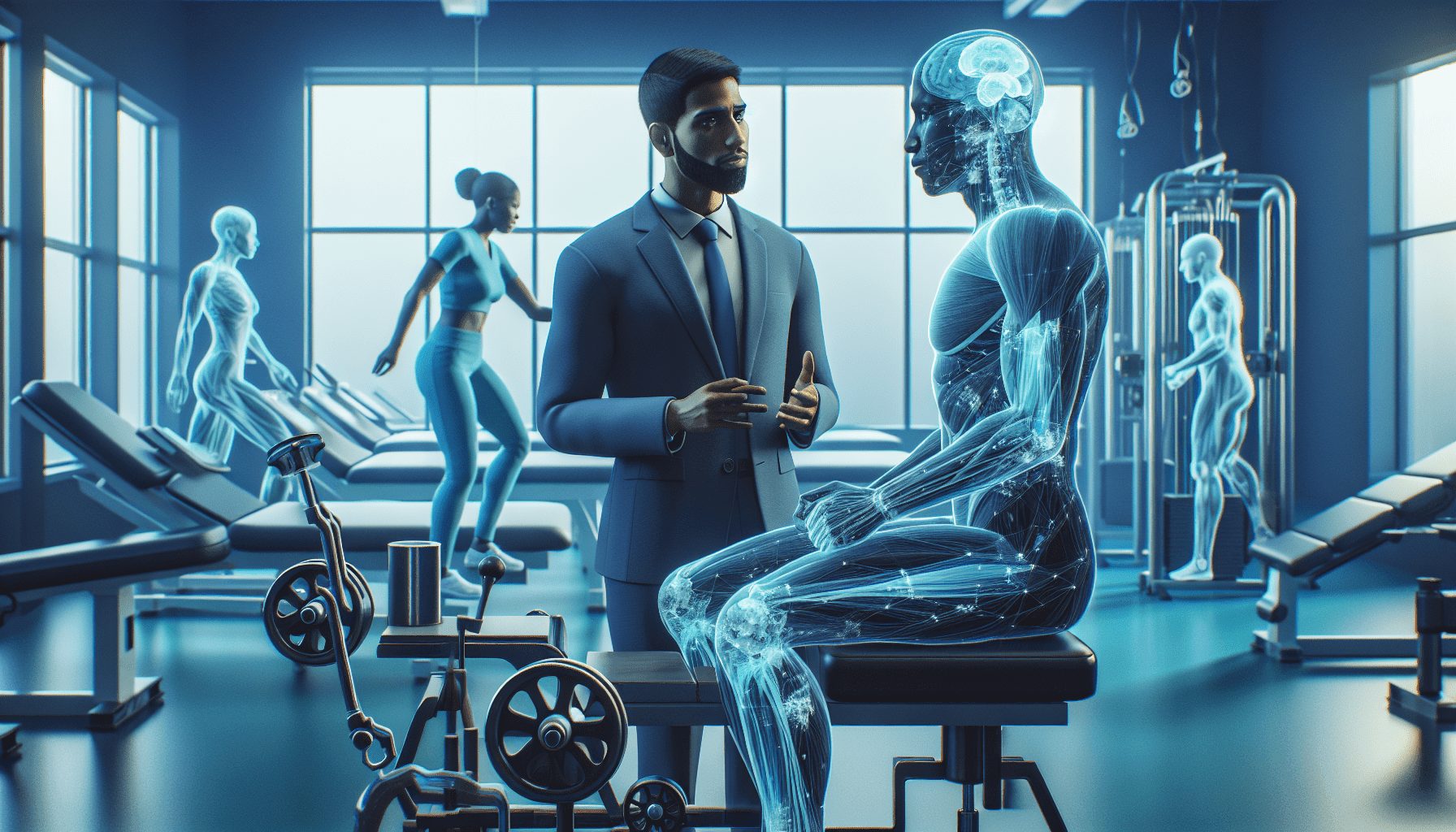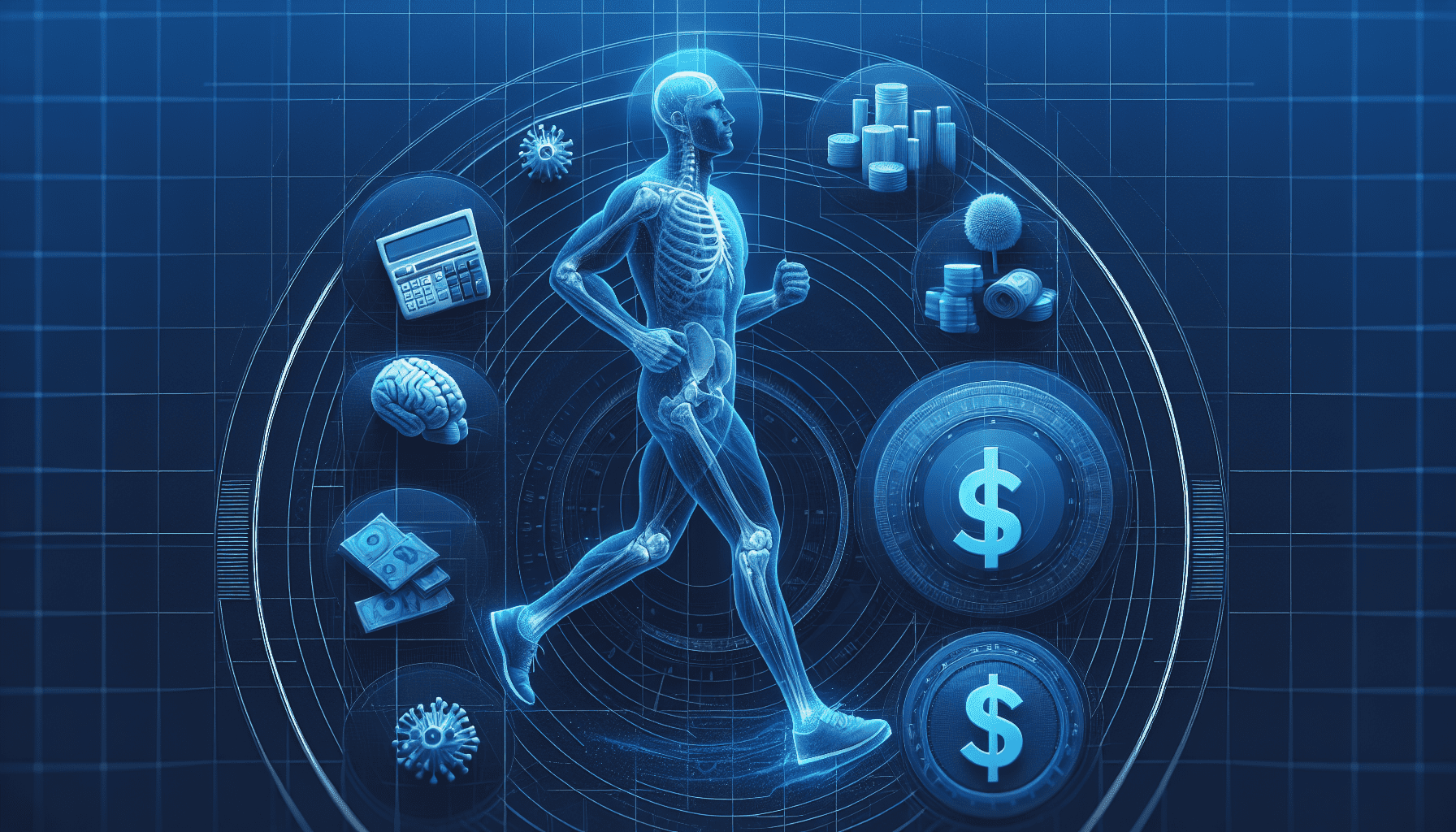Enhancing Recruitment with AI HR Software: Empowering Talent Acquisition
In today’s highly competitive job market, finding the right talent for your organization can be daunting. The traditional recruitment methods, such as manually screening resumes and conducting interviews, can be time-consuming and often result in a high volume of unqualified candidates. This is where AI HR software comes into play, revolutionizing how companies approach talent acquisition.
AI HR software leverages the power of artificial intelligence to streamline and enhance various aspects of the recruitment process. Automating repetitive tasks and utilizing advanced algorithms empowers talent acquisition teams to make more informed and efficient hiring decisions.
The impact of AI HR software on recruitment is significant. It not only saves time and resources but also improves the overall quality of hiring. With its ability to analyze vast amounts of data and identify patterns, AI HR software can accurately identify top candidates, reducing the chances of missing out on exceptional talent.
In this article, we will explore the benefits of using AI HR software in talent acquisition, delve into its key features, examine real-life case studies of companies that have successfully implemented it, and discuss important considerations when implementing this technology. So, let’s dive in and discover how AI HR software is transforming the recruitment landscape.
Benefits of AI HR Software in Talent Acquisition
In today’s competitive job market, streamlining resume screening is crucial for a successful talent acquisition. AI HR software brings a new efficiency level by automating the initial screening phase. With the help of advanced algorithms and machine learning, recruiters can quickly sift through many resumes, saving valuable time and effort. This allows them to focus on the most qualified candidates, increasing the chances of finding the perfect match for the job.
Another significant benefit of AI HR software is its ability to improve candidate matching. By analyzing the skills, qualifications, and experience listed in job descriptions and resumes, AI-powered systems can identify the best candidates for a particular role. These tools go beyond simple keyword matching and consider contextual information to ensure higher accuracy in candidate recommendations. This speeds up the hiring process and increases the likelihood of finding candidates who are the best fit for the organization.
AI HR software also plays a vital role in enhancing interview processes. Traditional interviews can be subjective and rely heavily on the interviewer’s biases. However, AI-powered interview platforms can provide standardized assessments and structured interview questions, ensuring a fair and consistent evaluation of candidates. This minimizes the influence of unconscious biases and allows for a more objective comparison of candidates’ abilities and potential.
One of the most significant challenges in recruitment is reducing bias in hiring. Unconscious biases can inadvertently influence the decision-making process, leading to discriminatory practices. AI HR software can help mitigate this issue by removing identifying information such as names, gender, and age from resumes during the screening process. By focusing solely on qualifications and skills, AI helps create a more inclusive and equitable hiring environment.
Lastly, AI HR software is instrumental in enhancing the candidate experience. With the integration of chatbots, candidates can receive personalized and timely responses to their inquiries, providing a seamless and efficient communication channel. This improves candidate engagement and leaves a positive impression of the company and its recruitment process.
The benefits of AI HR software in talent acquisition are numerous and significant. By streamlining resume screening, improving candidate matching, enhancing interview processes, reducing bias in hiring, and enhancing the candidate experience, organizations can optimize their recruitment efforts and find the right talent more efficiently.
Please continue reading to learn about the key features of AI HR software and how they contribute to the recruitment process.
Key Features of AI HR Software
Resume Parsing and Analysis
One of the key features of AI HR software is resume parsing and analysis. This technology allows recruiters to process and analyze large volumes of resumes efficiently. Using natural language processing algorithms, AI HR software can extract relevant information from resumes and categorize it into different sections such as education, work experience, skills, and qualifications. This automated process saves recruiters valuable time and ensures no important details are overlooked.
Automated Candidate Sourcing
AI HR software also offers automated candidate sourcing capabilities, revolutionizing how recruiters find talent. Instead of manually searching through countless job boards and social media platforms, AI algorithms can scan and analyze vast amounts of data to identify potential candidates that match specific job requirements. This expedites the sourcing process and increases the chances of finding high-quality candidates who may have otherwise been missed.
Natural Language Processing for Job Descriptions
Another powerful feature of AI HR software is natural language processing for job descriptions. This technology enables recruiters to create more accurate and appealing job descriptions that attract the right candidates. By analyzing the language used in successful job postings and leveraging machine learning algorithms, AI HR software can suggest improvements to job descriptions, ensuring they are optimized for maximum visibility and engagement.
Predictive Analytics for Candidate Assessment
AI HR software leverages predictive analytics for candidate assessment, enabling recruiters to make more informed hiring decisions. By analyzing historical data and patterns, AI algorithms can predict the likelihood of a candidate’s success in a particular role. This helps recruiters identify top performers and make data-driven decisions throughout the hiring process. Additionally, predictive analytics can help identify potential red flags or risks associated with candidates, allowing recruiters to address any concerns proactively.
Chatbots for Candidate Engagement
Lastly, AI HR software often includes chatbots for candidate engagement. These chatbots provide candidates with instant responses to their inquiries and streamline the communication process between candidates and recruiters. Whether it’s answering frequently asked questions, scheduling interviews, or providing updates on application status, chatbots offer a convenient and efficient way to engage with candidates throughout the recruitment process.
In conclusion, AI HR software offers a range of powerful features that enhance the efficiency and effectiveness of talent acquisition. From resume parsing and automated candidate sourcing to natural language processing for job descriptions, predictive analytics for candidate assessment, and chatbots for candidate engagement, these features empower recruiters to streamline their processes, attract top talent, and make data-driven decisions. By embracing AI HR software, companies can gain a competitive edge in today’s fast-paced and ever-evolving recruitment landscape.
If you want to explore more about AI HR software and its impact on recruitment, check out our article on Enhancing Recruitment with AI HR Software: Empowering Talent Acquisition.
Case Studies: Companies Using AI HR Software
As the adoption of AI HR software continues to grow, many companies are reaping the benefits of this innovative technology in their talent acquisition efforts. Let’s take a closer look at three case studies that highlight the advantages of using AI HR software in different areas of the recruitment process.
Company A: Increased Efficiency in Resume Screening
Company A, a leading technology firm, was facing a significant challenge in managing the overwhelming influx of resumes for their open positions. Traditional resume screening methods proved to be time-consuming and often resulted in missed opportunities to identify qualified candidates. To address this issue, Company A implemented AI HR software that leveraged advanced resume parsing and analysis capabilities.
The AI HR software quickly and accurately parsed through thousands of resumes, extracting relevant information and analyzing it against predefined criteria. This automated process significantly reduced the time and effort spent on manual screening, allowing recruiters to focus their attention on evaluating the most promising candidates. As a result, Company A experienced a substantial increase in efficiency, enabling them to streamline their recruitment process and make faster, more informed hiring decisions.
Company B: Improved Candidate Matching and Selection
Company B, a global financial services organization, recognized the importance of finding the right candidates who possess the specific skills and qualifications required for their diverse range of roles. However, manually sifting through a vast pool of applicants to find the perfect match was a daunting task for their HR team. To address this challenge, Company B turned to AI HR software for assistance.
By utilizing the software’s automated candidate sourcing capabilities, Company B was able to tap into a wider talent pool and identify candidates that aligned closely with their job requirements. The AI algorithms analyzed factors such as experience, skills, and qualifications to generate a shortlist of top candidates. This not only saved significant time and effort but also improved the overall quality of candidate matching and selection. Company B reported a higher rate of successful hires and a more efficient recruitment process, thanks to the power of AI HR software.
Company C: Reduced Bias in Hiring Decisions
Company C, a forward-thinking retail company, was committed to fostering a diverse and inclusive work environment. However, they recognized that unconscious biases could inadvertently influence their hiring decisions. To address this concern and ensure fair and unbiased evaluations, Company C decided to integrate AI HR software into their recruitment process.
The AI HR software utilized sophisticated algorithms and predictive analytics to assess candidate qualifications objectively. By removing human biases and focusing solely on skills, qualifications, and experience, Company C was able to make more informed and unbiased hiring decisions. This approach not only increased diversity within their workforce but also improved the overall performance and productivity of their teams.
These case studies demonstrate the transformative impact of AI HR software in enhancing various aspects of the recruitment process. From increasing efficiency in resume screening to improving candidate matching and selection, and reducing bias in hiring decisions, AI HR software has proven to be an invaluable tool for companies seeking to optimize their talent acquisition strategies.
In the next section, we will explore the key features of AI HR software that enable these remarkable outcomes. Stay tuned!
Continue reading: Key Features of AI HR Software
Considerations When Implementing AI HR Software
Implementing AI HR software can revolutionize the talent acquisition process, but it is crucial for organizations to consider several key factors to ensure a successful integration. From data privacy and security to ethical use of AI in recruitment, these considerations play a vital role in maximizing the benefits of AI HR software while mitigating potential risks.
Data Privacy and Security
When implementing AI HR software, organizations must prioritize data privacy and security. As AI systems rely on vast amounts of data to make informed decisions, it is essential to safeguard sensitive candidate information. This includes adhering to data protection regulations, such as the General Data Protection Regulation (GDPR) in the European Union, and implementing robust security measures to prevent unauthorized access or data breaches.
Integration with Existing HR Systems
Integrating AI HR software with existing HR systems is another critical consideration. Organizations should assess the compatibility of the AI software with their current infrastructure. Seamless integration ensures a smooth transition and allows for the efficient exchange of data between systems, enabling HR teams to leverage the full potential of AI technology without disrupting their existing workflows.
Training and Adoption by HR Teams
To fully harness the power of AI HR software, HR teams must receive proper training on how to effectively use and interpret the insights generated by the technology. Organizations should invest in comprehensive training programs that equip HR professionals with the necessary skills to leverage the AI tools and make data-driven decisions. Additionally, encouraging adoption and addressing any potential resistance to change within the HR department is crucial for successful implementation.
Ethical Use of AI in Recruitment
Ethics play a vital role in AI adoption, particularly in recruitment. Organizations must ensure that AI HR software is used ethically and responsibly throughout the talent acquisition process. This includes avoiding biased algorithms and discriminatory practices that may unfairly impact certain candidates. Regular audits and assessments should be conducted to monitor the AI system’s performance and identify any potential biases, ensuring a fair and inclusive recruitment process.
By considering these factors when implementing AI HR software, organizations can maximize its potential while maintaining data privacy, integrating seamlessly with existing systems, empowering HR teams through proper training, and ensuring ethical practices in recruitment. With careful planning and execution, AI HR software can become a valuable tool in talent acquisition, enabling organizations to attract and retain top talent effectively.
Conclusion
In conclusion, the integration of AI HR software into talent acquisition processes has revolutionized the recruitment industry. By leveraging the power of artificial intelligence, companies can streamline their recruitment processes, improve candidate matching, enhance interview processes, reduce bias in hiring, and provide an enhanced candidate experience.
One of the key benefits of AI HR software is its ability to streamline resume screening. With resume parsing and analysis capabilities, recruiters can quickly and accurately evaluate large volumes of resumes, saving time and effort. This ensures that only the most qualified candidates move forward in the hiring process.
Moreover, AI HR software excels in improving candidate matching. By utilizing automated candidate sourcing tools, recruiters can tap into a vast pool of talent and identify the best-fit candidates for a particular role. This not only saves time but also increases the chances of finding high-quality candidates who align with the company’s requirements.
Another advantage of AI HR software is its ability to enhance the interview process. Through natural language processing for job descriptions, recruiters can create more accurate and engaging job postings that attract the right candidates. Additionally, the use of predictive analytics for candidate assessment enables recruiters to identify top candidates based on data-driven insights, leading to more successful hiring decisions.
Furthermore, AI HR software plays a crucial role in reducing bias in hiring. By removing human subjectivity, AI algorithms can evaluate candidates solely based on their qualifications and skills, promoting a fair and unbiased selection process. This helps companies build diverse and inclusive teams.
Lastly, AI HR software contributes to an enhanced candidate experience. With the assistance of chatbots for candidate engagement, companies can provide personalized and real-time communication to candidates throughout the recruitment process. This improves candidate satisfaction and strengthens the employer brand.
Several case studies have demonstrated the effectiveness of AI HR software in improving recruitment outcomes. Companies such as Company A have reported increased efficiency in resume screening, leading to faster hiring processes. Company B has experienced improved candidate matching and selection, resulting in higher-quality hires. Company C has successfully reduced bias in their hiring decisions, fostering a more inclusive workforce.
However, when implementing AI HR software, certain considerations should be taken into account. Data privacy and security must be prioritized to ensure the protection of candidate information. Integration with existing HR systems should be seamless to avoid disruptions in workflow. Proper training and adoption by HR teams are essential for maximizing the benefits of AI HR software. Ethical use of AI in recruitment should be upheld to ensure fairness and avoid discrimination.
In conclusion, AI HR software has become a game-changer in the recruitment industry. Its ability to streamline processes, improve candidate matching, enhance interviews, reduce bias, and provide an exceptional candidate experience makes it an invaluable tool for talent acquisition. By embracing the power of AI, companies can stay ahead in the competitive hiring landscape and make more informed and successful recruitment decisions.
To learn more about AI HR software and its impact on recruitment, visit Engaged Headhunters, an AI recruitment agency that specializes in leveraging AI technology to help companies find the best talent.







